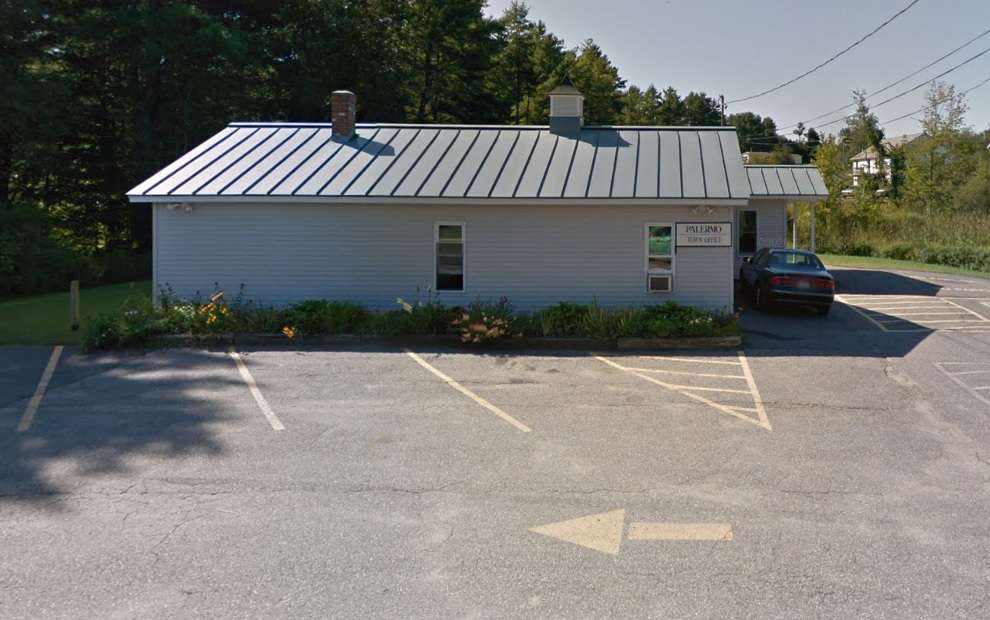Last week’s story covered primary schooling in the Town of Windsor, south of China and Vassalboro and east of Augusta in the Kennebec Valley. This week’s article will add a bit of information on Windsor high schools, plus a biographical sketch of an early area settler who was Windsor’s first primary-school teacher.
As described in previous stories in this subseries on education, the State of Maine’s 1873 Free High School Act required towns to provide high-school education. Some towns, including Windsor, did not wait for a state law.
Henry Kingsbury and C. Arlene Barton Gilbert both say Windsor’s first free high school started in 1867 in school District 1, in the municipal building at Windsor Corner (now the intersection of Routes 32 and 105).
Kingsbury’s version, in his 1892 Kennebec County history, is that town officials bought “seats and desks” for the second floor of the town house to open the school, with Horace Colburn the first teacher. Two high-school terms a year were held for about five years, he wrote (and Gilbert repeated, in her chapter on schools in Linwood H. Lowden’s 1993 Windsor history).
At a March 3, 1873, town meeting, Gilbert wrote, voters raised $200 for the high school; but they met again April 28 and rescinded the vote. To Gilbert, this sudden change of mind indicated “some dissatisfaction with the school.”
The problem was apparently resolved, because by 1877, voters were again supporting high school classes.
Gilbert quoted from Supervisor of Schools Joseph Colburn’s 1877 annual report saying District 1 had hosted two free high school terms, eight weeks in the spring, taught by Hattie King, from Whitefield, and 10 weeks in the fall, taught by Lizzie S. Milliken, from Augusta.
Colburn called the high school “very profitable to the district and vicinity, giving the scholars who attended an opportunity for improvement that they could not otherwise have had.” How many high-schoolers he did not say; the total in 13 Windsor schools that year was 400 students.
Gilbert then quoted from the 1878 report submitted by Supervisor George J. Moody, which covered only the fall term, beginning Sept. 4 and running 10 weeks. The teacher was Harry R. Thurston, of Belfast; there were 34 “scholars” (out of 376 in town), “most of them being well advanced and quite a good number having had experience as teachers.”
Moody listed 1878 high school courses as “reading, arithmetic, grammar, geography, composition, history, physiology, geometry and algebra.” He praised students and teacher; wrote that the “closing examination showed that the term had been both pleasant and profitable”; and expressed the hope “that the district will again avail itself of this opportunity.”
(Kingsbury said that Horace Colburn or Coburn [1812-1885] had three sons. Two of them taught school, starting in their teens; each of those two served as Windsor’s supervisor of schools, Joseph from 1871 to 1886 [with Moody interrupting?] and Frank in 1888 and 1889.
(For more on Windsor’s Colburn family, see the June 8, 2023, issue of The Town Line.)
Gilbert wrote that Windsor continued to support a free high school until “about 1902,” not always in District 1. In 1902, she said, there was a spring term; but by then, the town was paying tuition to a four-year out-of-town high school, which she did not name.
(The two most likely high schools were in Augusta and South China. Augusta’s Cony High School was operating well before 1902. Erskine Academy, in South China, opened in September 1883, and the Maine legislature incorporated it in 1901.)
Windsor is currently a member of Regional School Unit #12 (Sheepscot Valley). The town has its own elementary school for students in pre-kindergarten through eighth grade and continues to tuition out its high-school students.
The Rev. Job Chadwick
As mentioned last week, Windsor’s first elementary-school teacher was Rev. Job Chadwick. He was also the first teacher in what became China and for many years the townspeople’s “only spiritual guide” who lived in town, according to a 1931 family history compiled by Lillian Rich (McLaughlin) Gilligan, found on line.
Summary of Rev. Job Chadwick’s life
When Rev. Job Chadwick was born on 4 December 1756, in Falmouth, Barnstable, Massachusetts, United States, his father, James Chadwick, was 31 and his mother, Ruth Hatch, was 27. He married Mercy Weeks on 13 September 1784, in Harlem, Kennebec, Maine, United States. They were the parents of at least 3 sons and 1 daughter. He lived in Windsor, Kennebec, Maine, United States in 1810 and Gouldsboro, Hancock, Maine, United States in 1820. He died in January 1832, in Maine, United States, at the age of 75, and was buried in Chadwick Hill Cemetery, China, Kennebec, Maine, United States.
Gilligan began with the settlement of Jones Plantation (later China) in 1774. In the spring of 1782, she wrote, James and Ruth Chadwick came from southern Massachusetts with unmarried children Job, Ichabod, Elizabeth and Judah. They were followed in 1783 by married sons John and James, with their families and youngest son Lot, who’d been considered too young to move to the wilderness the previous year.
Gilligan guessed the Chadwicks came up the Kennebec to get to their new home, and mentioned a family tradition that they stopped first in Getchell’s Corner, in Vassalboro, not far from the river, before moving inland. Their China farms were in South China, including the area known as Chadwick’s Corner on what is now Route 32, leading from South China Village south into Windsor.
Gilligan said Job and his three older brothers were all born in Falmouth, Massachusetts. Gear or Gayer (who never came to Maine – he went to Philadelphia about 1774 and then to Beaufort, North Carolina, for the rest of his life) and John were born in the late 1740s, James, Jr. in the early 1750s and Job on Dec. 4, 1756 (making him 25 in the spring of 1782).
(Henry Kingsbury’s version of the family’s arrival is that Ichabod Chadwick, with his sons Job, Judah and James, settled Chadwick’s Corner before 1797. The website WikiTree names James, Jr., Judah, Ichabod and Asa as Job’s half-brothers.)
On Dec. 13, 1784, in Harlem, Job Chadwick married Mercy Weeks, born in Falmouth Dec. 5, 1757. Gilligan said the couple settled “near the present town house” (on what is now Lakeview Drive) and had four children: Abigail, born Nov. 30, 1785, married Joseph Linn; Paul, born May 30, 1787, married Hanna or Hannah Leeman; Abraham, born May 27, 1790, never married; and Lot, 2nd (or Lott), born Sept. 24, 1792, married Sally Linn.
The FamilySearch website agrees with the information above and adds that Job Chadwick lived in Windsor in 1810 and Gouldsboro (Maine) in 1820.
Your writer found no source that explained where or when Chadwick got his religious education, if he had one. In his Windsor history, Linwood Lowden wrote that “according to his own testimony, by the year 1804, Chadwick had already spent fourteen years in the ministry.”
A summary biography in Rev. Joshua Millet’s 1845 The History of the Baptists in Maine, says Chadwick was “ord[ained] an evan[gelist] at Vassalborough, 1796.” (The entire book has been digitized and is available on line.)
Millet wrote that Vassalboro’s first Baptist church was organized around 1790. Some of its members lived in adjoining Harlem, and in 1796 a separate church was organized in southern Harlem, named the Second Baptist Church, with Chadwick its pastor from 1797 to 1805.
Millet called Chadwick and the Vassalboro pastor, Nehemiah Gould, “men…who were experienced in all the peculiarities of a new country, and therefore qualified to lead the flock of God in such times.”
(Kingsbury said the First Baptist Church of Harlem was organized in 1797, with Chadwick the first preacher; he “supplied the church for eight years, and occasionally for several years afterward.” After China was made a separate town in 1818 and reunited with Harlem in 1822, the Harlem First Baptist Church became the China Second Baptist Church.)
How Chadwick qualified as a teacher is another unknown, but he definitely served as one, first in China and then in Windsor.
The China bicentennial history says Harlem residents established their first school in 1795, on Michael Norton’s land midway of the east shore of China Lake. Classes met either in a house or in a log cabin built for a schoolhouse, and the teacher was Rev. Job Chadwick.
Kingsbury surmised Chadwick must have run a successful school, because “he continued to wield the ‘birch’ several terms in succession here.”
Lowden wrote that Windsor’s first teacher (and first resident preacher) was Rev. Job Chadwick, who had previously taught in China. In 1804, Lowden wrote, the Society for the Propagation of the Gospel sought a teacher for two small settlements, Hunts Meadow (later included in Whitefield) and Pinhook (in the southern part of what became Windsor).
Lowden quoted at length from a July 18, 1804, letter from a Wiscasset minister named Alexander McLean recommending Chadwick. McLean wrote that Chadwick planned to move his family from Harlem to Windsor; called him “well qualified to instruct children’; and added that he “has for some years been employed in the instruction of children.”
McLean explained that a recent “variety of misfortunes” had “stripped [Chadwick] of all his worldly property,” so he could probably be hired to teach “at as easy a rate as any.” He recommended a month-long term at Hunts Meadow and two months at Pinhook, if the Society could afford that much, to “moralize and civilize” the settlements, pointing out that Chadwick could double as the Sabbath preacher.
Chadwick got the job. In her chapter on education in Lowden’s history, C. Arlene Barton Gilbert wrote that his first term of school in 1804 was two month long, with an average attendance of 15 to 20 youngsters.
Chadwick was still in Windsor in the spring of 1809, Gilbert said: at an April 3 town meeting at his house, voters raised $50 for education and chose a four-man school committee.
Disagreeing with Lowden’s and Gilbert’s information, Millet, in his religious history, implied that after Chadwick finished his ministry in Harlem in 1805, he promptly became a missionary in what a reviewer of Millet’s work called “the destitute regions of Maine and on Cape Cod, Mass.”
He then became a pastor in Gouldsborough, from 1816 to 1831. He returned to Windsor, where he died Dec. 25, 1831 (according to Millet), or in January 1832 (according to other sources). The latter sources say Mercy Chadwick had died in China in 1826.
FamilySearch says Job Chadwick is buried in China’s Chadwick Hill Cemetery. Find a Grave lists 52 Chadwicks in this cemetery, none named Job or Mercy.
Family members buried here include Job’s father, James (July 5, 1725 – Sept. 6, 1786); his mother, Ruth (Hatch) (Aug. 15, 1729 – Jan. 15, 1786); two of his brothers, James, Jr. (Feb. 25, 1753 – Oct. 25, 1826) and Judah (Dec. 9, 1765 – Aug. 9, 1816); James, Jr.’s widow, Rhoda (Weeks) (1756 – Jan. 30, 1831); and Judah’s widow, Sarah “Sally” (Webber) (1766 – Feb. 25, 1854).
Also buried in Chadwick Hill Cemetery, according to Find a Grave, is Job and Mercy’s son Paul, the surveyor who worked for the Kennebec Proprietors and was killed by squatters as he worked in Malta (later Windsor) in September 1809 (see the March 7, 2024, issue of The Town Line for a summary history of the so-called Malta War).
Main sources
Kingsbury, Henry D., ed., Illustrated History of Kennebec County Maine 1625-1892 (1892).
Lowden, Linwood H., good Land & fine Contrey but Poor roads a history of Windsor, Maine (1993).
Websites, miscellaneous.
 by Mary Grow
by Mary Grow




 Select board approves project
Select board approves project



